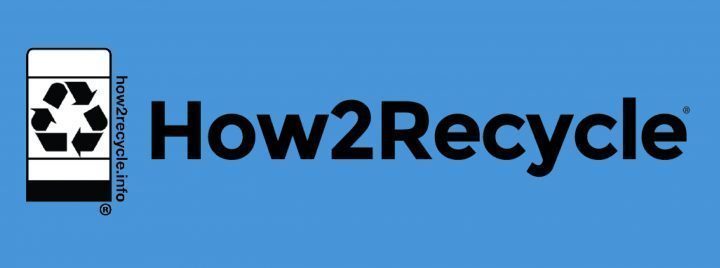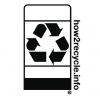As of July 28, 2022 How2Recycle has updated guidance on rigid PP structures. Please review updates here.
Effective January 31, 2020, the How2Recycle® label program is making several changes to the recyclability of packaging to continue to align with the Federal Trade Commission’s Green Guides. How2Recycle assesses the recyclability of each package that features a How2Recycle label based on multiple criteria. This includes how many people can recycle the package through curbside or drop-off programs, if the package will be sorted and reprocessed correctly, and if end markets exist for the material. Each How2Recycle label is backed by scientifically credible data so that the general public can rely on a consistent, standardized labeling system run by a 501(c)(3) environmental nonprofit to know how to recycle more accurately.
Recent data collected by How2Recycle demonstrates that fewer Americans are able to recycle certain items in the communities where they live. Accordingly, some packages will now feature Check Locally labels instead of Widely Recycled labels.
Polypropylene (PP) rigid containers and cups will now be assigned the Check Locally How2Recycle label.
As of July 28, 2022 How2Recycle has updated guidance on rigid PP structures. Please review updates here.
While just over the majority (60%) of Americans have access in their community to a recycling program that accepts rigid polypropylene (PP), there is uncertainty around how many of those programs ultimately may be landfilling or incinerating the material, and to what extent challenges for PP recycling will continue to trend. In the presence of uncertainty, the Federal Trade Commission recommends qualified claims. Accordingly, all PP (#5 plastics) tubs, trays, bottles, and cups are now Check Locally rather than Widely Recycled for the How2Recycle program in the United States. To find out more information about whether PP may be recyclable in your community, visit https://how2recycle.info/check-locally. Like always, look for instructions in the How2Recycle label to prepare the package for recycling. Recyclability in Canada will continue to be monitored.
Polyethylene terephthalate (PET) non-bottle rigid containers will now be assigned the Check Locally How2Recycle label.
Best available data indicates that the majority (60%) of Americans can no longer recycle non-bottle rigid PET containers in their community. As a result, it no longer meets the Federal Trade Commission’s guidelines for an unqualified recyclability claim, and PET non-bottle rigid containers will now feature the Check Locally label for the How2Recycle program in the United States. These items include certain salad boxes, bakery containers, to-go containers, egg cartons, and trays in paper boxes. To find out more information about whether non-bottle rigid PET containers may be recyclable in your community, visit https://how2recycle.info/check-locally. PET non-bottle rigid containers may still receive the Widely Recycled How2Recycle label in Canada; this could change as we continue to monitor recycling trends.
Investment in the US recycling system is needed. Accordingly, we strongly encourage How2Recycle members to work with organizations like Closed Loop Partners and The Recycling Partnership to facilitate proactive interventions to improve the recyclability of packaging. For example, grants or loans to Material Recovery Facilities (MRFs) enabling them to acquire more effective sortation equipment like optical sorters and robotics will make it easier for recyclers to handle these materials. Additionally, it is critical that brands select labels, adhesives and inks for PET containers that meet ‘Preferred’ criteria for plastics recyclers per the APR Design® Guide for Plastics Recyclability.
If you are a member of the general public, you can best support recycling by continuing to recycle high-value materials like plastic bottles, metal cans and cardboard boxes, and by following your community’s recycling instructions to avoid inadvertently contaminating the recycling stream. You should also encourage the brands you buy from to transparently label their packaging with the How2Recycle label so that you can know how to recycle more accurately.
Packaging that contains PFAS will now be assigned the Not Yet Recycled How2Recycle label.
How2Recycle will label any packaging that contains intentionally added per- and polyfluoroalkyl substances, or PFAS, as Not Yet Recycled. There are thousands of synthetic compounds classified as PFAS that are used to make products and packages, such as paper, water and oil resistant. Some PFAS are known to have adverse human health effects, including high cholesterol, ulcerative colitis, thyroid disease, testicular and kidney cancer, pregnancy-induced hypertension, and preeclampsia. While some PFAS are approved for use in food-contact packaging by the U.S. Food and Drug Administration (U.S. FDA) and Health Canada, PFAS are ‘forever chemicals,’ meaning they do not break down over time. How2Recycle created this rule to avoid the intentional contribution of hazardous forever chemicals to the recycled material stream in the US and Canada. Examples of packages that may be impacted by this new rule include paper bowls, plates, and cups, fast food containers, take-out containers, bakery and deli paper, microwavable popcorn bags, frozen meal trays.
"It just doesn't make sense to intentionally add a material to the recycling stream that could impact circularity in the long term," says Nina Goodrich, the Executive Director of GreenBlue, the parent nonprofit of How2Recycle and Sustainable Packaging Coalition.
You will see recyclability changes reflected on packaging in stores soon.
About How2Recycle
The How2Recycle® label is a U.S. and Canada-based standardized labeling system that clearly communicates recycling instructions to the public. Over 200 brandowners and retailers are members of How2Recycle, and tens of thousands of products carry the How2Recycle label in the marketplace. How2Recycle is a project of the Sustainable Packaging Coalition®, a membership-based group that brings together businesses, educational institutions, and government agencies to collectively broaden the understanding of packaging sustainability and develop meaningful improvements for packaging solutions. How2Recycle and Sustainable Packaging Coalition are a part of GreenBlue, a 501(c)(3) nonprofit based in Charlottesville, Virginia, United States. Companies interested in joining How2Recycle can visit https://www.how2recycle.info/join for more information or contact [email protected].


